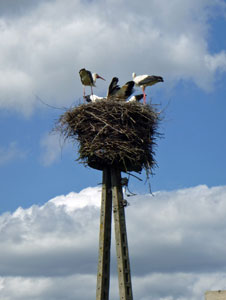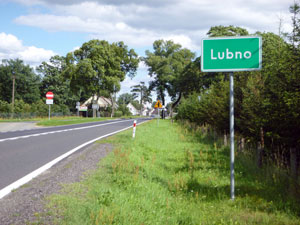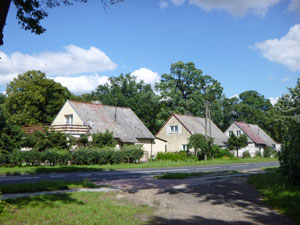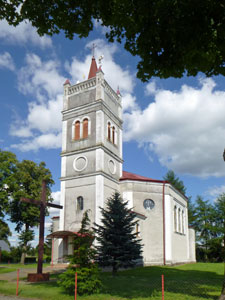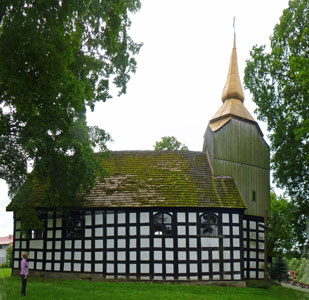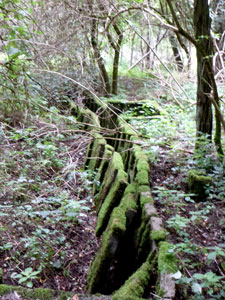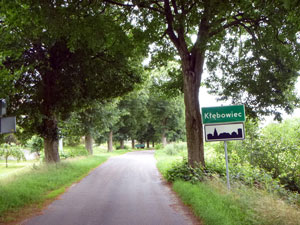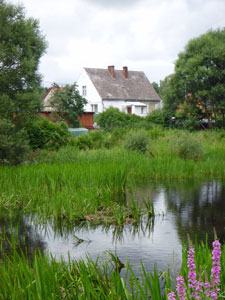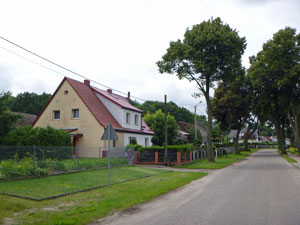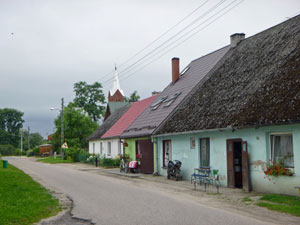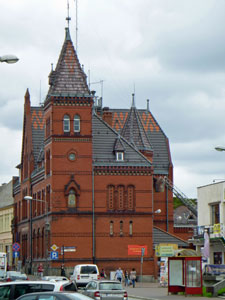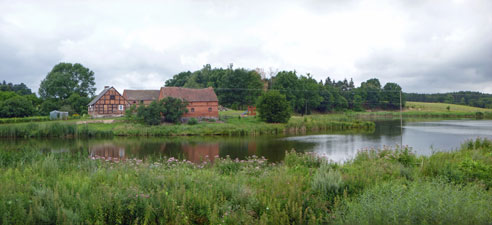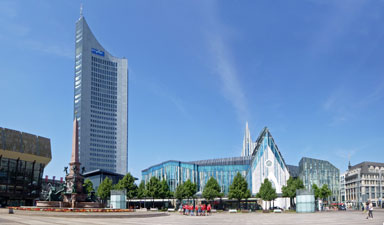| In the Land of My Ancestors |
I indulge the nerdish side of my personality by tracing my family history and investigating the origins and distribution of my surname. Thus, when we found that the best flight option to Europe had us landing in Berlin, it seemed a good opportunity to visit the land of my ancestors, just a few hundred kilometres to the north-east. In 1855, my great-great-grandfather emigrated to Australia from a village in the old Prussian province of Posen, but through comparing paper records and the Y-DNA of different families with our common surname, I have been able to ascertain that they originally came from the Deutsch Krone area of the neighbouring Prussian province of Westpreussen. |
Following the flight and expulsion of German civilians at the end of WWII and the realignment of borders by the victors, this region is now part of Poland and there is no possibility that any distant relative might still be there. However, the purpose of our visit was more to get a feel for the landscape and character of the region that, for several hundred years, my ancestors called home. Thus, fresh off the plane (or not so fresh as we were 30 hours in transit), we found ourselves driving through the patchwork of forest, field and lakes that was the land of my ancestors. |
|
|
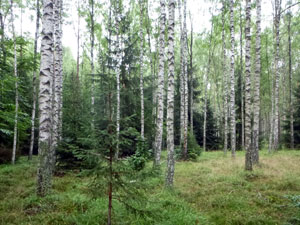 Deutsch Krone - a land of forests ...... |
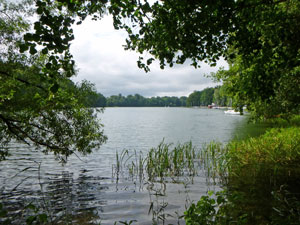 .... and lakes |
|
Deutsch Krone (or Walcz, as the Polish know it) lies on the flat and sandy plain that stretches across Northern Europe. Here, a 50m rise is probably a big hill, but it is by no means a boring landscape. The forests are thick, dark and diverse, with conifers, birch and beech trees giving them a rich tapestry of colour and form. Break out of the forest, and you are in the midst of rolling fields of wheat, rye, oats and corn, dotted by the small settlements established by German settlers centuries ago, many probably no larger now than then. Probably the loveliest feature of this landscape is that is a region of lakes; hundred of lakes, large and small, from the small village pond to large, still bodies of water surrounded by reeds and thick forest. It must have been a shock for my ancestor, when he first set eyes on the wide, brown land of Australia. |
||
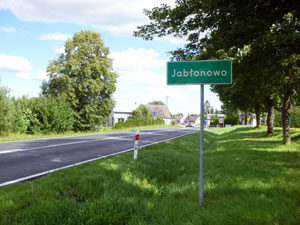 |
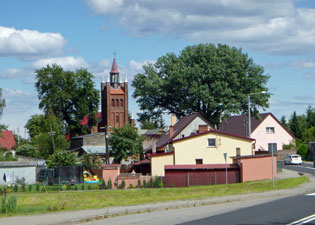 The village of Appelwerder (now called Jablonowo) |
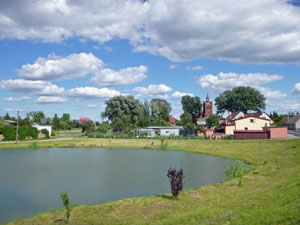 |
|
|
|
We based ourselves in a delightful guesthouse in the midst of the forest and wandered from village to village where records showed that people with my family name had lived - Lüben, Appelwerder, Clausdorf, Klein Nakel, Neugolz and Hohenstein (or as they are known today - Lubno, Jablonowo, Klebowiec, Nakielno, Golce and Gornica). |
||
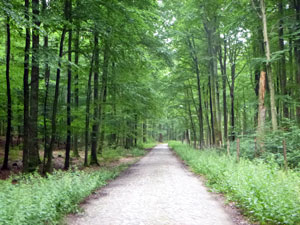 Cobbled road through the forests of Deutsch Krone |
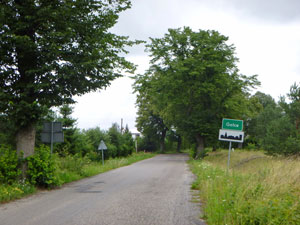 Entering the village of Neugolz (now Golce) |
|
Many of the older buildings are probably gone, as the Red Army was on a scorched earth mission as they drove through this region during their push to Berlin in the winter of 1945. It was sobering to see trenches and bunkers crumbling in the forest where a major battle was fought, but uplifting to visit a church built in 1645 that had survived - a church in whose grounds I suspect some of my ancestors lie buried. |
||
|
|
|
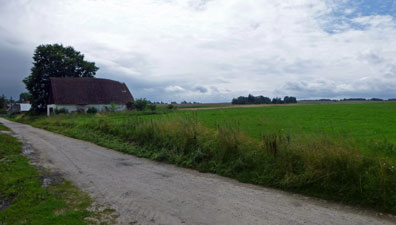 Farmland near Klein Nakel Farmland near Klein Nakel |
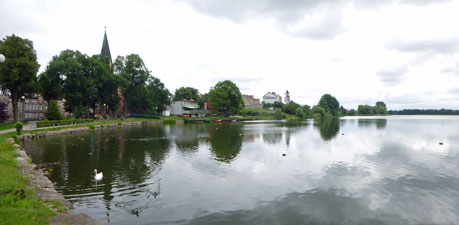 The lake at Walcz |
|
|
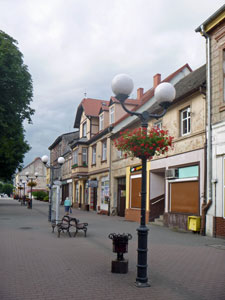 |
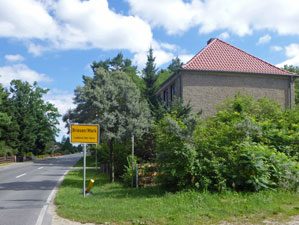 Meseritz (left, now Miedzyrzecz), Briesen (above) and the River Spree near Fürstenwalde (right) - more 18th century hotspots for people with my surname |
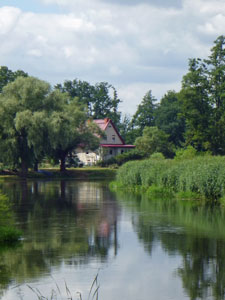 |
It had been a worthwhile detour to our Scandinavian adventure and I left with a much greater sense of my cultural heritage. However, we did not head on immediately, but took another detour via the old German city of Leipzig, home to Johann Sebastian Bach and to the State Archive where much of the 15% of church records that survived the war is stored. The nerd within was calling me to trawl through these records and try to add a few more branches to the family tree. |
||
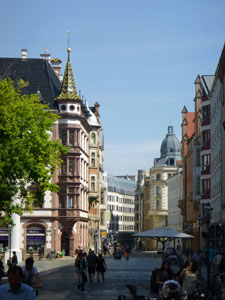 Leipzig old ..... |
|
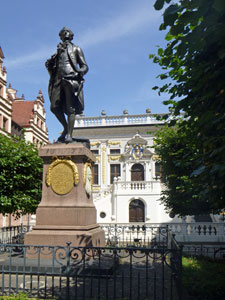 Johann Sebastian Bach |
Then it was time to head on for real - the main reason for out trip awaited and the first stage of that lay to the north in Denmark, starting with a 6-day cycle tour of the island of Zealand. |



